Femia > Health Library > Pregnancy > Pregnancy week by week > 2 Weeks pregnant: What to expect in your body
2 Weeks pregnant: What to expect in your body
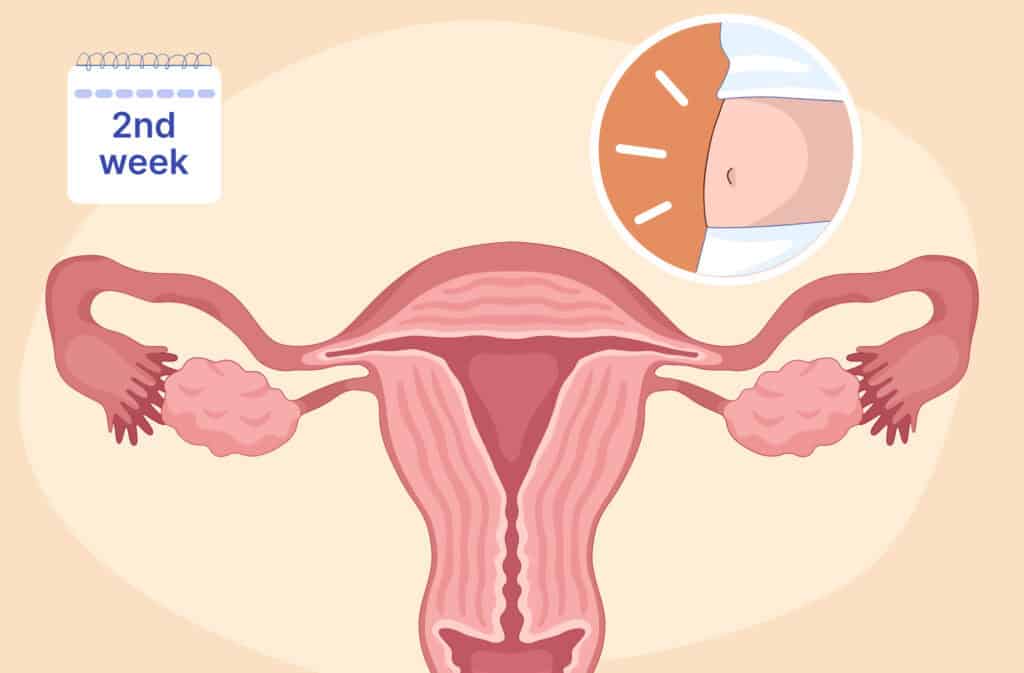
- Updated Mar 4, 2025
- Published
CRAFTED BY HUMAN
Crafted by human At Femia, we provide accurate and up-to-date information at every stage of your journey, from trying to conceive, pregnancy and postnatal support. All content is created by a real person based on in-depth research and own professional experience. Femia ensures that you will receive expert advice, strict accuracy and a personalized approach from our authors/medical experts. Learn more about our editorial policy.
FACT CHECKED
Fact checked At Femia Health, we maintain the highest standards of editorial excellence in delivering content focused on helping you conceive, guiding you through pregnancy, and supporting you postpartum. Explore our content review principles to learn how we ensure the accuracy and quality of our health and lifestyle tips for every stage of your journey.
When discussing pregnancy timelines, it’s important to note that doctors use the first day of your last menstrual period (LMP) to calculate gestational age. This can be confusing because, according to medical calculations, you are considered “2 weeks pregnant” during the second week of your menstrual cycle—even though actual pregnancy hasn’t begun yet. During this time, your body is in the follicular phase, preparing for ovulation as the egg matures. Pregnancy typically starts after the egg is fertilized and implants in the uterine wall, usually occurring in the menstrual cycle’s third or fourth week. If you’re trying to conceive, tracking ovulation during this phase can be particularly helpful.
At 2 weeks pregnant, your body is preparing for a significant event: ovulation, the release of a mature egg that could lead to conception. While this is still early in the pregnancy timeline, hormonal changes are in full swing, creating the optimal environment for fertilization. Although there is no embryo yet, understanding what happens during this phase can be helpful, especially if you’re actively trying to conceive. This stage is essential for tracking symptoms, monitoring ovulation, and setting up a foundation for a healthy pregnancy.
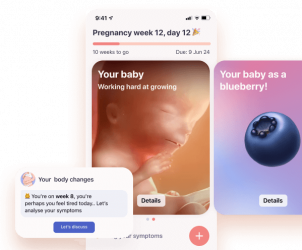
2-week pregnant symptoms
Since pregnancy is calculated from the last menstrual period, being “2 weeks pregnant” generally means that you’re about to ovulate. This phase is crucial, as ovulation must occur for conception to happen. Here are some common signs and symptoms you may experience:
- Increased cervical mucus: You may notice changes in discharge, which becomes clear, stretchy, and similar to egg whites. This type of 2-week discharge is a sign of peak fertility.
- Mild cramping or abdominal discomfort: Known as mittelschmerz, this ovulation-related cramping is normal as the body prepares to release an egg.
- Breast tenderness: Hormonal shifts during ovulation can cause temporary breast sensitivity or fullness.
- Higher libido: Many people experience an increase in libido around ovulation as hormone levels peak.
👉Find out more: 1 Week pregnant: Early signs, body changes, and what to expect
Your body at 2 weeks pregnant
At 2 weeks pregnant, your body is primed for conception. Hormones like estrogen and luteinizing hormone (LH) rise, signaling the ovaries to release a mature egg. This egg will travel down the fallopian tube, where it may meet sperm if conception occurs. It’s a crucial week for those actively trying to conceive, as the chances of pregnancy are highest during ovulation.
2-week pregnant belly
No physical changes are noticeable in the belly at this early stage. However, some people may experience slight bloating or mild cramps as ovulation approaches.
Baby development at 2 weeks pregnancy
At week 2, there is no embryo or fetus. The primary focus is on ovulation and the potential fertilization that might occur if sperm meets the released egg. Fetal development begins after fertilization and implantation, which usually happens in week 3.
2-week ultrasound
An ultrasound at 2 weeks would not detect pregnancy, as conception has not yet occurred. Ultrasounds for pregnancy confirmation are typically conducted around weeks 6-8 to detect a heartbeat.
Fetus size at 2 weeks
Since fertilization has not taken place, there is no fetus or measurable size at this stage. Fetal size tracking will start once pregnancy is confirmed and fetal development begins.
👉Find out more:
3 Weeks pregnant: Symptoms, body changes, and fetal development
Health tips and self-care at 2 weeks pregnant
- Stay hydrated: Proper hydration supports cervical mucus production, which aids in tracking ovulation.
- Balanced diet: Incorporate nutrient-rich foods like leafy greens, whole grains, and lean proteins to support reproductive health.
- Track your cycle: Consider using an ovulation predictor kit to identify your most fertile days. If you’re thinking about tracking your basal body temperature (BBT), keep in mind that it requires daily monitoring over several months to establish a reliable pattern.
- Consider prenatal vitamins: If you’re trying to conceive, prenatal vitamins with folic acid not only help prepare your body for a healthy pregnancy but also reduce the risk of developing neural tube defects in the future fetus.

Tips for 2 weeks pregnant
Start your prenatal vitamins
If you haven’t already, it’s important to begin taking a prenatal vitamin with at least 400 micrograms (mcg) of folic acid every day. Folic acid is essential in the early stages of pregnancy as it helps reduce the risk of neural tube defects. Prenatal vitamins also provide critical nutrients such as calcium, iron, and vitamin D that support both your health and your baby’s development.
Consult your healthcare provider
Scheduling a preconception checkup is a great first step toward a healthy pregnancy. Your healthcare provider can give you guidance on lifestyle adjustments, medication changes, and answer any questions you might have about the pregnancy journey. This appointment is also a good time to discuss any concerns you have about becoming a parent.
Genetic carrier screening
Consider discussing genetic carrier screening with your doctor and partner. This test can help identify potential genetic conditions that could affect your baby, giving you the information to make informed decisions. Many couples opt for this screening, especially if there’s a family history of inherited conditions.
Make time for regular sex
For the best chances of conception, aim for regular intercourse, ideally every two to three days after your period ends. This ensures that sperm will be present when ovulation occurs. Studies show that daily or every other day sex during the fertile window increases the likelihood of pregnancy.
Prioritize self-care
Taking care of your physical and mental health is key when preparing for pregnancy. Eating nourishing foods, getting enough sleep, managing stress, and incorporating activities like yoga or massage into your routine can improve your chances of conception. Reducing stress also helps create a healthier environment for pregnancy.
Strengthen your body
Building strength in your core and back will benefit you throughout pregnancy and help ease the physical changes ahead. Core-strengthening exercises, like yoga and weight training, are great for preventing back pain and helping you recover faster post-pregnancy.
Avoid harmful substances
As you prepare for pregnancy, be mindful of what you put in your body. Avoid alcohol, tobacco, recreational drugs, marijuana, and excessive caffeine. These substances can affect fertility and create complications during pregnancy.
Questions from the Femia community
What are the expected medical tests?
At 2 weeks, there are no specific pregnancy tests, but those trying to conceive may consider an ovulation predictor kit to help track fertility.
Pregnancy-friendly skincare routine
Stick to gentle, fragrance-free products, avoid retinoids and harsh acids, and consult with a dermatologist about any concerns to ensure safe skincare during pregnancy.
What can I do to increase my chances of pregnancy at 2 weeks?
Track ovulation, maintain a healthy diet, and manage stress to support fertility and maximize chances for conception.
The bottom line
At 2 weeks pregnant, your body is focused on ovulation, not yet on pregnancy. This week is crucial for those trying to conceive, as it’s when your fertility peaks. Symptoms may resemble premenstrual or ovulation signs rather than pregnancy-specific changes. Tracking ovulation, maintaining a balanced diet, and using self-care practices can help optimize your chances for conception in the coming weeks. You can track pregnancy symptoms in the app like Femia.
References
- “2 Weeks Pregnant: Symptoms & What to Expect.” BabyCenter, www.babycenter.com/pregnancy/week-by-week/2-weeks-pregnant.
- “Your Pregnancy and Baby Guide: Weeks 1 to 3.” NHS, www.nhs.uk/pregnancy/week-by-week/1-to-12/1-2-3-weeks/.
- “2 Weeks Pregnant: Symptoms, Body Changes, and Tips.” The Bump, www.thebump.com/pregnancy-week-by-week/2-weeks-pregnant.
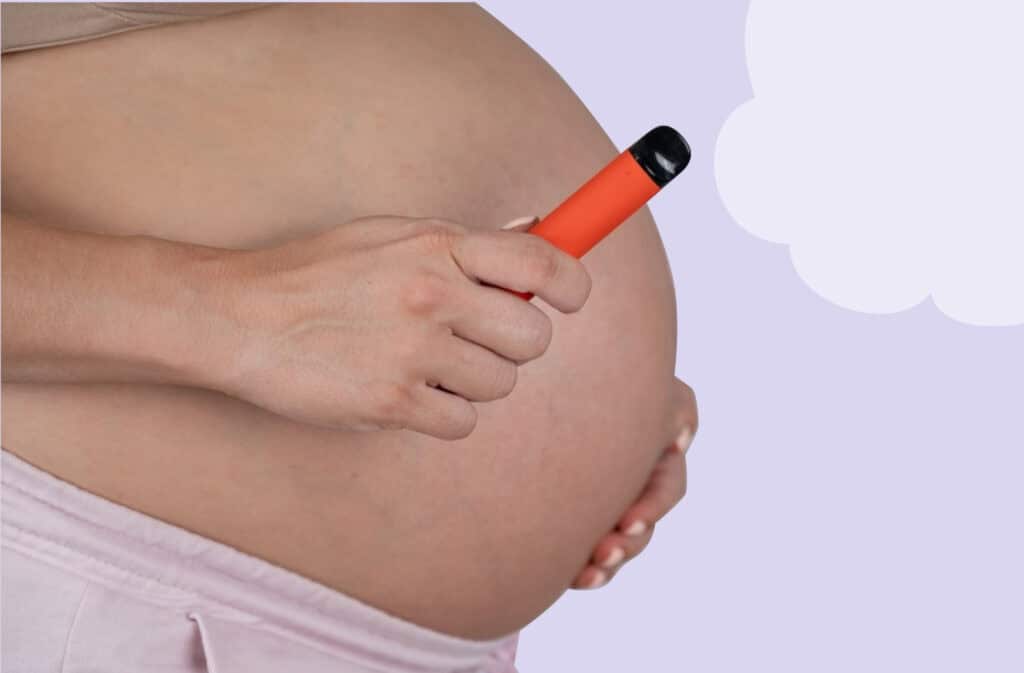
Vaping is still quite new, so we don’t yet know all the risks of vaping while pregnant. Find out why vaping during pregnancy isn’t advised and how to quit for good.
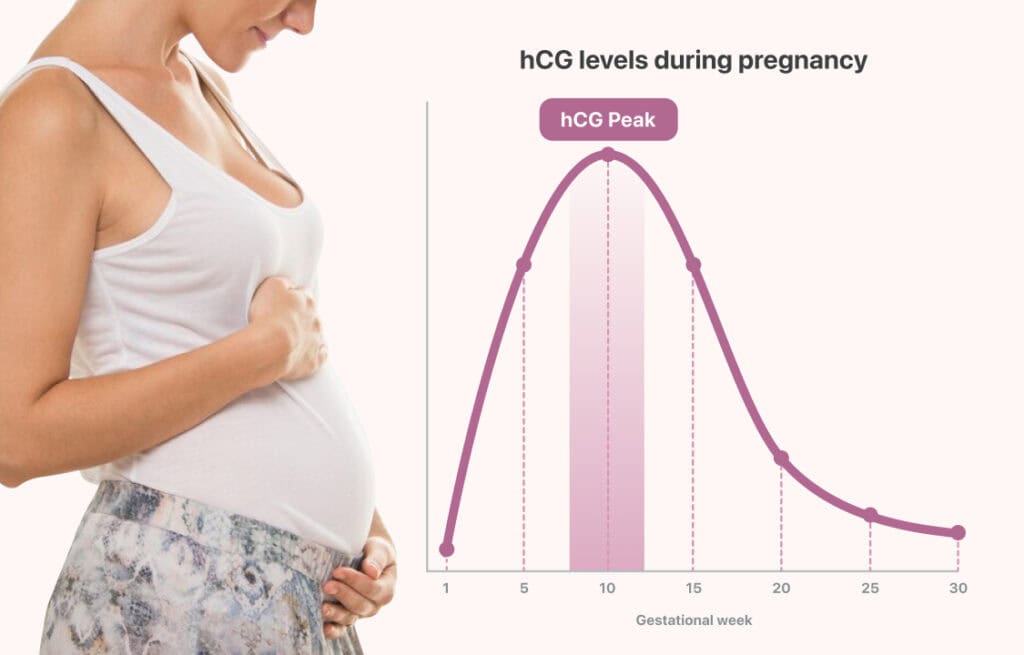
Explore this in-depth guide about the role of hCG in pregnancy, hCG levels by week, symptoms of rising hCG levels, and when to consult a doctor for an abnormality.
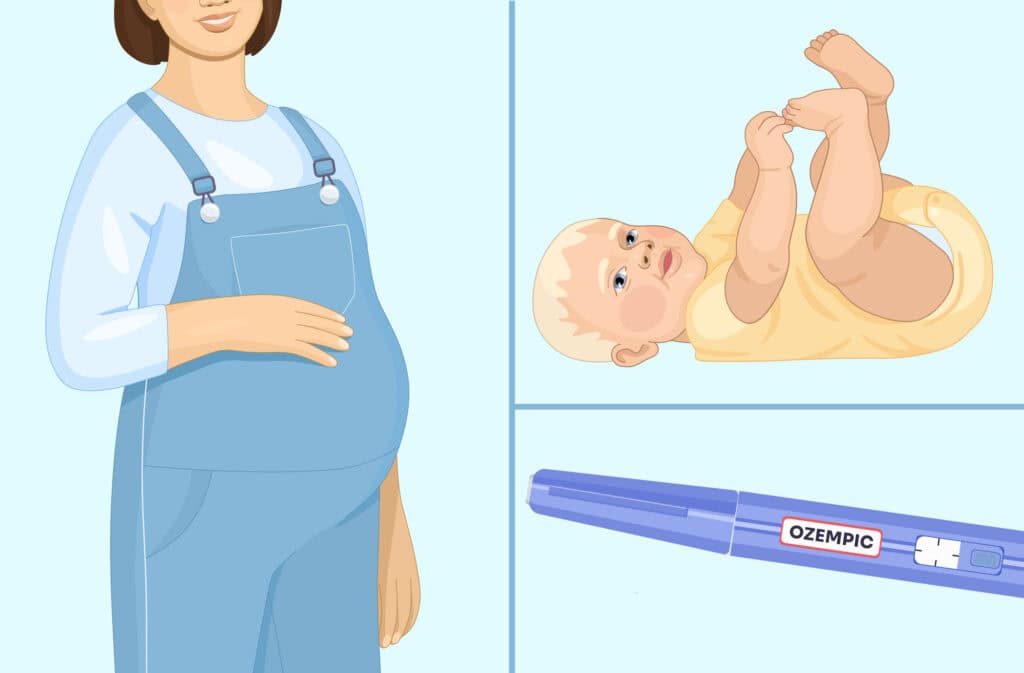
Discover how Ozempic affects fertility and pregnancy. Learn about ‘Ozempic babies’, potential risks, and alternatives for managing weight while trying to conceive.

